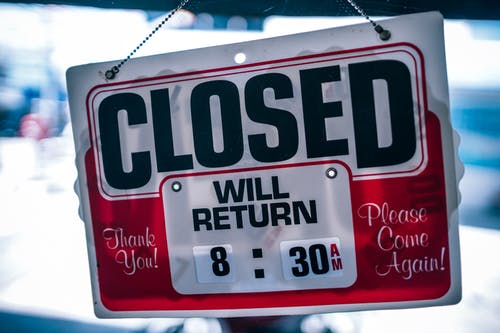
Starbucks coffee shops are one of the most recognizable — and successful — examples of franchise businesses.
Talking about franchising means talking covering a range of topic, from first becoming a franchisee to how to exit the business. In my experience being a franchisee for 10 years, subsequently selling that business, being elected as an owner representative for the national marketing fund and becoming an area developer, I’ve filled a variety of roles that have carried with them different responsibilities and given me different viewpoints. Holding all three at the same time meant that keeping my integrity for all stakeholders was a challenge, to say the least, but that integrity is critical for success.
Working within a franchise system means networking, finding ways to cooperate and compete effectively with different sectors and with consideration to different models. I’ve also held several roles working with channel partners for technology companies, everything from setting up programs to partner development, and it’s amazing just how many similarities and experiences can be leveraged.
Starting with this piece, I’ll be covering a few different areas of interest when it comes to franchising. I’m also interested in addressing your questions, so write in using the form below and I’ll do my best to answer questions! Here’s four areas we’ll be talking about in the future, from understanding your goals to exiting the business:
1) Know yourself – Are you an entrepreneur or looking to buy a job? You can accomplish either with franchising, but you’ll need to know what you are looking for first. What are the prerequisite skills you need to maximize potential for success?
2) Research the concept – Do you know why some information, especially negative, may be difficult to find? What are the red flags that should cause you to run? What are the benefits of the franchisee system you are considering?
3) Running a successful operation – Every franchise has rules – what can you do to ensure you are executing to standards? Are you holding the franchiser accountable? What happens if you have a disagreement?
4) Exiting the franchise – Will you need to provide owner financing? What are the pitfalls and ongoing liabilities after transfer?
Think through
Being a franchisee is not for everyone. In the upcoming series we will provide an insider’s view from the discovery stage onward — including purchasing, operating and finally, exiting the system. On the surface, it may seem fairly straightforward. On the inside, however, the franchiser has the power of knowledge and you will be at a disadvantage. This is not saying the franchiser is bad – it’s just a fact. They know more about all areas involved in actually running the business — including your chance of success — based on information across the system. In this series, we will attempt to level the playing field by sharing insider knowledge many systems do not want you to know about.
Tell me about your franchise experiences or ask questions for consideration in this series. Small business – get the inside scoop on franchise systems!
About the Author:
 Gregory Woloszczuk is an entrepreneur and experienced tech executive that helps small business owners grow their top and bottom line. Gregory believes in straight talk and helping others see things they need to see but may not want to with a focus on taking responsibly for one’s own business. He and his wife, Maureen, started GMW Carolina in 2006.
Gregory Woloszczuk is an entrepreneur and experienced tech executive that helps small business owners grow their top and bottom line. Gregory believes in straight talk and helping others see things they need to see but may not want to with a focus on taking responsibly for one’s own business. He and his wife, Maureen, started GMW Carolina in 2006.
Related Stories
‹

Small Business, Big Lessons™ - Don’t be a Tool!When you are working with clients – do they consider you a business partner? Are you so critical to their success that they would have a difficult time finding an alternative person or solution? If not – you may be a tool. If you are a tool like a screwdriver or hammer – very easy […]

Small Business, Big Lessons™ - Leave Them HungryEver deliver a sales presentation and feel like it is your one shot to get all the information to your prospect? That generally is not the case. Your role is to create an appetite for more discussion to lead along the sales path. In other words – leave them hungry! Utilize these three success tips: […]

Small Business, Big Lessons™ - Exiting the FranchiseExiting the Franchise The time will come to sell your franchise. Maybe it’s due to being ready for retirement, heath concerns, loss of a partner or just simply being burnt out. We will discuss some tips to get you ready now. The better prepared you are now – the better the resale value when you […]

Small Business, Big Lessons™ - Running a Successful FranchiseRegardless of franchises or independent business, step one is for you to “own” the business and its success. In today’s “Small Business, Big Lessons,” we will discuss leveraging all your franchisee resources but no matter the support or lack of support – your name is on the business as its owner and staying focused on […]

Small Business, Big Lessons™ - What They Don't Want You to Know About FranchisingInsider Secrets for Researching a Franchise – What They Don’t Want You to Know! In this continuation of our special franchising series, we will share information most franchisors do not want you to know. At this point you have decided to pursue a franchise concept. You believe it may be a fit for you. You […]

Small Businesses, Big Changes: Owners Share Local Challenges and Access to ResourcesWith more demand for property and land in Chapel Hill and Carrboro, small businesses are being priced out. This year, during 97-9 the Hill’s annual Forum on The Hill series, FRANK Gallery, The Gathering Place and The Purple Bowl came in to talk about the stages of change they have experienced as a result.

Small Business, Big Lessons® - Celebrating 3 Years!Time flies when you are having fun. It is hard to believe the Small Business, Big Lessons column is celebrating 3 years. This week will be a walk down memory lane and how it started. Our business had been advertising for years with WCHL and Chapelboro.com. I’ve had the pleasure of being interviewed by Ron […]

Small Business, Big Lessons® - Measure Twice, Cut OnceEver hear the saying “measure twice and cut once?” It is what carpenters live by. It means taking the time to ensure your accuracy before cutting a piece of wood. There’s nothing worse than needing to go back to the lumber yard to finish a job or try to make something fit – especially if […]

Small Business, Big Lessons® - Local Spotlight on FitnessAmong the businesses hit hardest by Covid-19 is the fitness industry. I had the opportunity to interview local business owner, Dana Harshaw. Dana owns and operates Barre3 (pronounced bar three) in Chapel Hill. She is the local owner within a franchise system of over 140 locations. We spoke about the challenges, opportunities and concerns owning and […]

Small Business, Big Lessons ®: How to Apply 60/30/10Most people have heard of 80/20. Such as 80% of your business comes from 20% of your customers. The concept of 60/30/10 is how one can allocate investments including time. Too many times if you ask anyone – what does a day in the life look like – it will turn into a laundry list […]
›

 Gregory Woloszczuk is an entrepreneur and experienced tech executive that helps small business owners grow their top and bottom line. Gregory believes in straight talk and helping others see things they need to see but may not want to with a focus on taking responsibly for one’s own business. He and his wife, Maureen, started GMW Carolina in 2006.
Gregory Woloszczuk is an entrepreneur and experienced tech executive that helps small business owners grow their top and bottom line. Gregory believes in straight talk and helping others see things they need to see but may not want to with a focus on taking responsibly for one’s own business. He and his wife, Maureen, started GMW Carolina in 2006.










